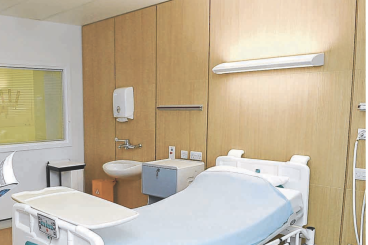THE number of healthcare-acquired bloodstream infections in Dumfries and Galloway have risen dramatically over the past year.
And bringing these figures down again must now be one of the top priorities for NHS Dumfries and Galloway for the year ahead, according to health board chairman Nick Morris.
NHS Dumfries and Galloway was aiming for no more than 14 cases of these infections – known as SABs (staphylococcus aureus bacteremia) – in 2022/23.
However, 31 cases have been recorded in the first ten months alone, from April 2022 to January 2023, which has alarmed health board members.
They met to discuss the latest data in a healthcare associated infection report (HCAI) for the region.
The report states: “After assessment of the current HCAI SAB data and continued escalating HCAI SAB trajectory, the ICC (infection control committee) was clearly extremely concerned.
“It was agreed that the prevention of SAB should be an urgent priority for the board going forward, which must be driven from an executive level.
“It was stated that the chair will raise this issue as one of the top priorities for NHS Dumfries and Galloway in 2023/24 and has requested prevention of SAB work plan to be commenced, led by the executive nurse director, infection prevention and control manager and infection control doctor.”
SAB can occur following a break on the skin, a wound, or an intravenous line being put in place.
Skin and soft tissue continues to be the single most prevalent cause of these infections in healthcare settings, according to the report.
The document underlines that infections related to invasive devices are “also a significant concern”.
Meanwhile, the number of patients picking up E-Coli at healthcare facilites is also on the rise.
The ‘exceedance limit’ for E-Coli cases in 2022/23 is 41, however it had already reached 62 within the first ten months (April 2022-January 2023).
The healthcare associated infection report states: “The ICC was equally concerned by the current HCAI ECB (healthcare associated infection E-Coli bacteraemia) data and trajectory presented.
“It was agreed that prevention of ECB should also be an urgent priority for the board going forward, which must be driven from an executive level.”
However, for healthcare-acquired C-Diff infections, the health board looks set to meet its target. The aim was to have no more than 31 cases this year and 22 were recorded in the first ten months.
























